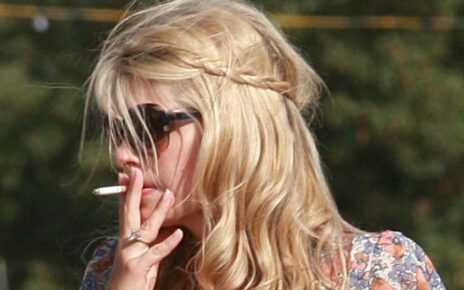POTTY training can be a stressful, and messy, process.
But there are a number of things you can do to make it easier, and calmer.


Parenting expert Sue Welby, of Littlelifesteps has been so successful helping thousands of children conquer toileting that she's earned the nicknames "Super Sue" or "the wee and poo lady", and has shared her top five tips.
Don’t ask if your child wants to go to the toilet. Their favourite word is no.
"Offer choices instead in fun ways so your child feels in control," Sue advised.
Such choices include: "Do you want to go to the toilet with your eyes open or your eyes shut?"
Read more Parenting stories

We’re parenting experts and you’ve been changing your baby’s nappy wrong

I’m a parenting expert – five ways to help your child with separation anxiety
"They love to say eyes shut and you can make it fun guiding them to the toilet area," Sue said.
Or why not try, "Do you want to take your dinosaur or your car into the toilet area?"
"Let them park it somewhere special or a dinosaur can perch somewhere exciting," she added.
And if they don't work, maybe think about using a timer, and asking them: "Do you want to use the toilet in 1 minute or 5 minutes?"
Most read in Fabulous

I wouldn't change Eddie cheating – it was worth it, says Denise Van Outen

We're energy experts & people make the same mistakes when heating their homes

I’m giving my son a Christmas-inspired name – people say it’s ‘ghastly’

I'm a chemistry teacher – people say I shouldn't wear my outfits to school
Make the toileting journey entertaining and fun.
"Toddler’s brains are exploding, they have 50% more nerve connections than adults," Sue said.
"When a child gets up in the morning, all their brain wants to do is learn, explore and play.
"So, if we make toileting fun, we are preparing them to use the toilet without them even knowing what we are doing.
"We want to ignite their imaginations and get them enthusiastic to wave goodbye to their nappies."
A great way to do this is to make some "toilet roll binoculars" and take your kids on an underwear hunt.
Or use potty stickers that change into a picture when a child wees on them.
"Children are amazed and it adds that fun element," she added.
"I know lots of children who have been reluctant to sit on the potty and when we introduce a potty sticker they can't wait to see the picture."
Get little ones using some of their senses in the toilet area. They love it.
To help your little ones used to the toilet area, you can ask them questions such as "Can you hear mummy’s wee wee?" or "Can you smell the lovely soap?"
"If your child loves to smell things, visit a shop or build your own soap and get a special soap just for toilet time handwashing," Sue explained.
"Foam soaps are popular."
Make sure your child is drinking enough fluids.
While this might be an obvious tip, it's important that your child drinks enough to make sure they have enough to empty.
"The bladder is a muscle that needs exercising," Sue said.
"It needs filling and emptying to exercise it.
"Their bladder will misbehave if a child is not drinking enough and they are more likely to have accidents."
If you need to encourage your child to drink more, why not say "Cheers" with them with your own cup?
And think about foods higher in water content too.
Parents need to ooze confidence (even if they don’t feel it) and be armed with knowledge.
"Children sense it if we are not," Sue said.
"If you are stressed and overwhelmed your child will feel the same."
The potty training process will also show parents how much patience they have.
Read More on The Sun

I’m obsessed with Christmas & my clever tips will make any cheap tree look luxe

We switched to a smart meter & were charged £13k in ONE NIGHT
"Knowing your triggers as well as your child’s can help you to navigate through the toileting hurdles," she continued.
"If parents can feel confident and calm about starting the toileting process their children will pick up on their body language and take their cues from you."
Source: Read Full Article
